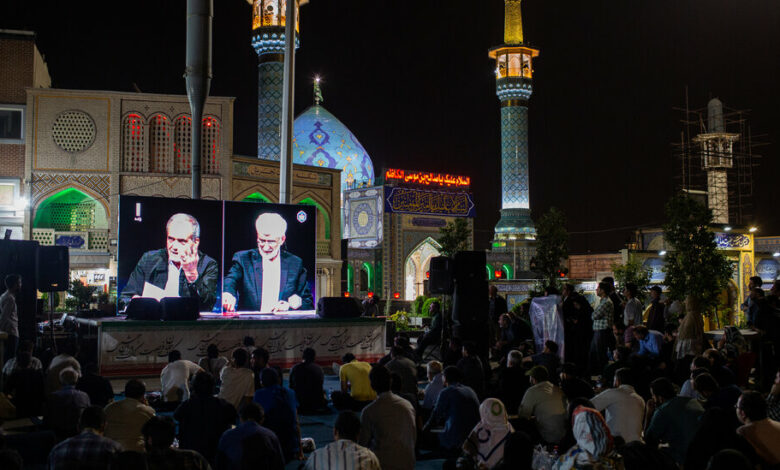Iran’s presidential candidates: who are they?

A reformer and an ultraconservative will face off in a runoff on Friday. Neither candidate won the majority of votes needed to win the presidency in the first round, which was plagued by record-low turnout and discontent with the political establishment.
The July 5 election, called a year early following the death of former President Ebrahim Raisi in a helicopter crash in May, will determine whether reformist candidate Dr Masoud Pezeshkian or hardliner Saeed Jalili takes over the presidency of a country grappling with a paralysed economy, internal protests and foreign policy challenges.
In the first round, 60 percent of eligible voters either did not show up at the polls or cast blank votes in protest against the ruling elite, which they consider ineffective and unable to solve Iran’s domestic and international problems.
Dr. Pezeshkian received over 10.4 million votes (42.4 percent) of the approximately 24 million votes cast, while Saeed Jalili received 9.47 million (38.6 percent).
Although Dr. Pezeshkian received the most votes in the first round, it is unclear who will emerge as the winner on Friday. The third-place candidate, Mohammad Baqer Ghalibaf, who received 13.8 percent of the vote in the first round, supported Mr. Jalili, but previous polls showed that many of Mr. Ghalibaf’s supporters would not back Mr. Jalili.
Here’s what you need to know about Dr. Pezeshkian and Mr. Jalili:
Doctor Masoud Pezeshkian
Dr. Pezeshkian is a cardiac surgeon and veteran of the Iran-Iraq war. He served in parliament and was Iran’s Minister of Health.
Reformist candidates were largely disqualified from the 2021 presidential and parliamentary elections held in March. Experts say Dr. Pezeshkian was likely allowed to run by the Guardian Council, the governing body that decides which candidates can run, to boost voter turnout after many Iranians boycotted the March parliamentary elections. The government sees high voter turnout as crucial to the perceived legitimacy of the elections.
Dr. Pezeshkian, an Azeri, one of Iran’s ethnic minorities, was backed by former President Mohammad Khatami. The candidate has shown openness to nuclear negotiations with the West, framing the debate as an economic issue. US-led sanctions over Iran’s ballistic and nuclear missile programs are currently crippling the country’s economy.
Dr. Pezeshkian has been outspoken in the past about the government, condemning its violent enforcement of mandatory hijab laws after the country was rocked by protests in 2022 following the death of an Iranian-Kurdish woman, Mahsa Amini.
Saeed Jalili
Mr. Jalili, an ultraconservative former nuclear negotiator nicknamed “the living martyr” after losing a leg in the Iran-Iraq war, represents the country’s most hardline ideological positions on domestic and foreign policy.
Mr Jalili, who has close ties to Iran’s Supreme Leader Ayatollah Ali Khamenei, said he believes Iran does not need to negotiate with the United States for economic success.
His position on the issue presents the public with a “completely unrealistic” assessment of Iran’s economic potential, said Mehrzad Boroujerdi, an Iran expert and dean of the Faculty of Arts, Sciences and Education at Missouri University of Science and Technology.
“He is strongly opposed not only to any nuclear deal, but also to any kind of opening in the West,” Mr Boroujerdi said.




